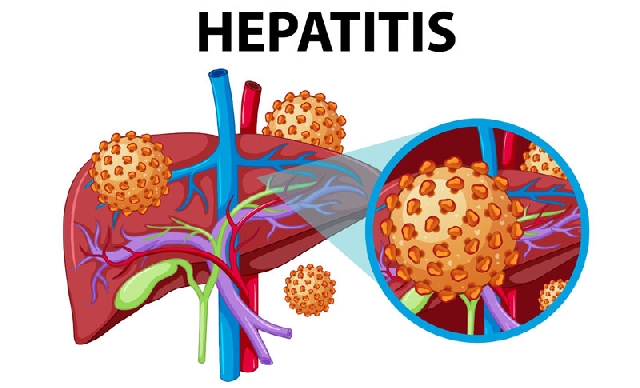Hepatitis poses major public health threat in Ghana – MPs call for action
 Hepatitis B
Hepatitis B
The Minority Leader in Parliament, Alexander Afenyo-Markin, has raised alarm over the growing public health threat of hepatitis in Ghana, calling for urgent national efforts to combat the disease.
Speaking on the floor of Parliament, Afenyo-Markin revealed that an estimated four million Ghanaians may be living with hepatitis unknowingly, making it one of the country’s most pressing silent health crises.
He noted that limited access to healthcare, particularly in rural areas, has left many unaware of their status, putting lives at risk.
“Globally, 304 million people are living with hepatitis, and the disease claims 1.3 million lives each year, mostly due to liver cancer and cirrhosis,” he stated.
He urged the government and stakeholders to intensify public awareness campaigns, reduce stigma around the disease, and improve early detection and treatment, especially in underserved communities.
“We must expand our healthcare infrastructure and strengthen our commitment to routine screening, education, and vaccination.
Only then can we mitigate the devastating impact of hepatitis on our people,” Afenyo-Markin added.
Responding to the Minority Leader’s statement, Dr Grace Ayensu Dankwa echoed the urgency of the situation, stressing that public health education is central to fighting hepatitis B.
She explained that a significant number of people unknowingly carry the virus, and ignorance about its transmission and prevention continues to fuel its spread.
“Educating the public on how hepatitis B is contracted, how to prevent it, and the importance of early testing is the first and most powerful step toward reducing new infections,” she said.
Dr. Dankwa also welcomed the government’s free primary healthcare initiative, noting that its inclusion of the hepatitis B vaccine will be a game-changer in tackling the disease, especially among vulnerable populations.
“The integration of hepatitis B vaccination into the national healthcare package will increase accessibility and protection, particularly for those in remote areas,” she added.
On his part was the Second Minority Chief Whip, who doubles as the MP for Weija Gbawe, Jerry Ahmed Shiab lauded a statement on hepatitis, emphasising the importance of preventive care.
He noted that prevention is better than cure and highlighted the profound impact of the initiative.
The MP referenced the initiative's leader, who personally supported the effort with an initial amount of one million, encouraging others to contribute what they can.
The MP's statement underscores the significance of preventive care in addressing hepatitis and commends the initiative's leader for their commitment to improving healthcare outcomes.
Both leaders emphasised the need for a coordinated national response—combining education, screening, vaccination, and improved access to healthcare—to curb the rising burden of hepatitis in Ghana.
Source: Classfmonline.com
Trending News

Tema Police arraigned four over 315 parcels of suspected Indian Hemp
14:23
Three Nigerian nationals jailed for vehicle theft in Kumasi
16:17
Minority labels Abronye's arrest, arraignment as political persecution
12:01
Police announce arrest, further arraignment of Abronye over 'offensive conduct conducive to breach of peace'
00:34
Vice President sends goodwill message to Oguaa traditional area at 61st Fetu Afahye
00:02
TDC Managing Director sues Kweku Baako Media over alleged defamation
12:05
Businessman donates computer to NADMO office in Suhum
08:44
Vice President Opoku-Agyemang meets UN Climate Advisor, calls for fair and just global climate action
09:34
CenPOA 'respectfully disagrees' with gov't over No Fees Stress for tertiary institutions
22:56
Public Servants charged to be ambassadors of positive change –. Dora Dei-Tumi
04:41



